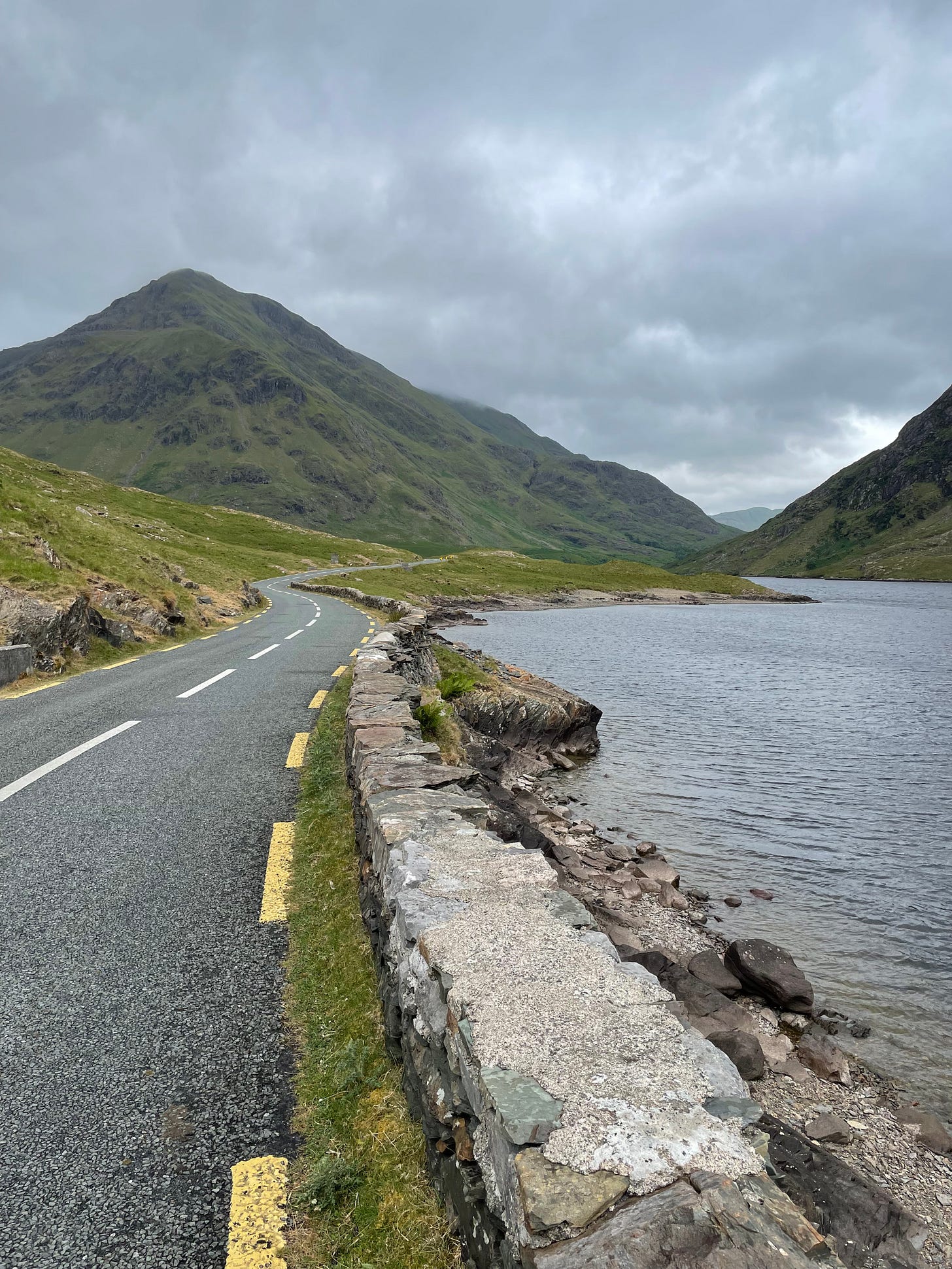The Weekly Writ for June 28: Chow holds off Bailão
Plus, differing views of history across the Pond, turmoil in New Brunswick and a potential Poilievre minority government.
Welcome to the Weekly Writ, a round-up of the latest federal and provincial polls, election news and political history that lands in your inbox every Wednesday morning.
I’m back from my voyage to the Emerald Isle and it’s nice to see that some things haven’t changed here in Canada — like the smoke that is choking Ottawa this week. It’s making me wistful for the smell of sheep dung.
I had a lovely trip to Ireland. I passed some time in counties Carlow, Mayo and Donegal as well as in Dublin. Driving across the island was a bit of an experience (we take for granted our wide, luxurious roadways), but overall Ireland did not feel tremendously different or unfamiliar to this Canadian. Perhaps this was a reflection of some genetic memory derived from my Irish ancestors who crossed the Atlantic in the late 18th and early 19th centuries.
More seriously, it’s surely a reflection of Ireland’s significant cultural influence on Canada. Nevertheless, there was something that did feel very different: the Irish sense of history.
The country feels like one that is still very much in the shadows of its own history, more than I have felt in some other European countries. In and around Co. Carlow, every small town had a monument to the Rebellion of 1798 and the Easter Rising of 1916. Elsewhere, there were monuments to these events as well as the famine that decimated the country from 1845 and led to the deaths of about a million people and the emigration of an even greater number over the subsequent decades. A modern museum in the capital is dedicated to that emigration. The population of Ireland remains lower than it was before the famine, and many Irish Canadians trace their lineage to that event (mine, luckily for them, came earlier).

The Irish War of Independence, the Civil War that followed and the partition of the country between Northern Ireland and the Republic of Ireland still has painful consequences that are felt today, be it the lasting scars of the Troubles or the complications from the United Kingdom’s exit from the European Union. Ireland’s history is unavoidable.
Canada does not seem to be as fixated on its history — and especially not the same kind of history. Our monuments tend to be for those who died in the World Wars, a conflict that certainly transformed Canadian society but never reached our shores in any significant way. (These memorials are few and far between in Ireland, which stayed out of World War II and has a conflicted memory of the sacrifices made in the First World War for a British Empire that was seen as an oppressive occupier.)
The events that Ireland commemorates are focused on sacrifice and suffering, about the perseverance and survival of those who rose up against the odds to fight for their freedom and were brutally crushed, or who went through the trauma of the famine, evictions and emigration of the mid-19th century. These monuments cry out that, despite everything, Ireland is still standing.
Over here, Acadians, Newfoundlanders, Quebecers and other French Canadians also have a historical memory centred around the idea of survival. Canada’s Indigenous peoples are still in the midst of that story of survival and the country has yet to fully come to terms with that legacy.
The immigrants who came to Canada since the turn of the last century and their descendants also bring their own stories of survival and perseverance, whether it be what brought them to this country or what sacrifices have been made since they got here.
But these are generally not treated as the founding stories of Canada. And they are not shared histories — which is probably why Canada’s approach to history feels so different from a place like Ireland. We don’t have as many collective triumphs or traumas to gather round (especially since the triumphs of some have often proven to be the traumas of others). Better to gather round the Summit Series or Terry Fox or something else a little more recent and uplifting.
The contrast between our respective approaches to history says something about Ireland and Canada. I’m not exactly sure what it all means, but it is definitely something I’ve taken with me from my trip — along with a few extra pounds. No amount of hiking up mountains or touring cobblestoned streets can completely cancel out the pleasures of the Irish pub.
Now, to what is in this week’s instalment of the Weekly Writ:
News on Olivia Chow’s win in Toronto, the results of two byelections in B.C., trouble for Blaine Higgs in New Brunswick and what I missed while I was away.
Polls show a tighter race in Manitoba, plus the numbers I missed at the federal level as well as in Ontario and Quebec.
Pierre Poilievre’s Conservatives would win enough seats to form a minority government if the election were held today.
A safe Conservative seat in this week’s riding profile.
An abbreviated #EveryElectionProject on past elections that took place on this day.


